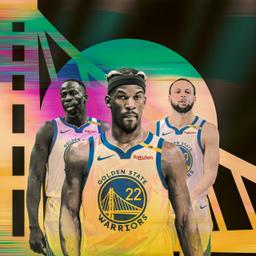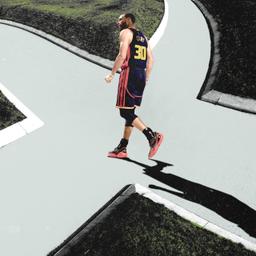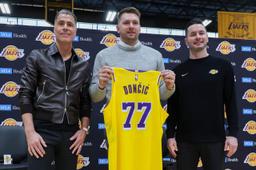Say what you will about Jimmy Butler, but there aren’t many people in the NBA with a better sense for weakness. He knows what buttons to push. He knows when to attack, when to retreat, when to bend one’s grasp of reality with a smile. He’s tapped into angles of exploitation. He knows how to get into your head, and he knows all the exits. How does he do it? He’d be the first to tell you he isn’t the biggest, the strongest, the fastest, or the most skilled. He is not superlative, but that in and of itself is a feint. Butler has been underestimated his entire career in one way or another, and he usually emerges outside of expectation. Every so often, he seems to raze the foundation upon which he stands. That, too, is a clever sleight of hand. When there is nothing below to support you, your mere presence becomes a miracle of levitation.
And on Wednesday night, less than 18 hours before the trade deadline, Butler floated over the Miami Heat organization, getting (nearly) everything he wanted by playing by his own rules. Butler, in spite of everything, is now a Golden State Warrior. Within minutes of Golden State and Miami (and all the other trade tentacles) making a deal, it was reported that Butler had already agreed to a two-year, $112 million extension with the Warriors—something Butler reportedly communicated that he wouldn’t do just three days earlier. The extension is roughly identical to what Miami declined to offer him this past summer, which kick-started Butler’s monthslong escalation in the first place.
Maybe Butler’s insistence on being traded to the Phoenix Suns was all just a part of the charade, a mirage of desire that Butler dangled in front of Heat president Pat Riley as bait. (See? See how easy it is to question reality? This is exactly how Butler gets you.) Riley hedged his bet on Butler over the summer; it took mere minutes after the initial breaking news for Butler to show how quickly a team would go all in for him. The three suspensions this season, the millions in lost wages (that will be disputed by the players association), the fallout—it was all worth it (for Butler, yes, but also, for anyone following Kevin Love’s Instagram account).
“I know there was a lot of drama down there,” new teammate Steph Curry said in his reaction to the trade, after the Warriors’ 131-128 loss to the Utah Jazz on Thursday. “Who really knows what the story is? We expect to have a motivated, committed Jimmy.”
Any concerns about fit might stem from a preoccupation with the shorthand description of the Warriors’ past decade of influence. Yes, Butler has never been a particularly prolific or accurate 3-point shooter, but the Warriors at their best are about more than just 3s. The team has always revolved around motion and chain reactions. The pressure Butler applies to defenses at the rim is a different catalyst—at no point during Curry’s peak years have the Warriors had a battering ram of his caliber. Curry can relocate off of Butler’s drives; Butler can cut, screen, and slip into the pockets of space that Curry’s gravity creates. It’ll be different, but given how shockingly mediocre the Warriors offense has been this season (they rank 19th in offensive rating), it isn’t too difficult to see how Butler’s arrival could be a good thing.
Of course, Butler’s dynamic alongside Draymond Green might end up being the most compelling dynamic about the trade. You can reconstruct a top-tier defensive identity through those two players. You can also entirely combust. They each refract intensity in different ways. With tension, Draymond’s identity as a basketball supercomputer gives way to that of an aspiring prizefighter innie; that same tension in Butler has powered some of the greatest playoff performances in Miami Heat history. The Warriors have long attributed the dominance of the team’s peak years to a certain edge that Green embodied. The all-encompassing question becomes: Does Steve Kerr know how to wield a double-edged sword?
That will be answered in due time. For now, it’s hard not to marvel at Butler’s manipulation (or at least begrudgingly accept it). Butler backed himself, albeit in a do not try this at home kind of way. Not too many stars across league history would try to pin Riley into a corner. But Jimmy’s practiced this a handful of times—in Chicago, in Minnesota, in Philly, now in Miami—and has come away largely unscathed each time. He didn’t try to magnify his value by dominating games while holding firm to his trade request, the way Kevin Garnett would have approached things if he were in Butler’s shoes. He didn’t pull his Timberwolves practice shenanigans again. He just … kind of physically and spiritually separated himself from the team, secure in his self-valuation. Even if the rest of the world wasn’t so sure.
It’s been a wonky adjustment period to the NBA’s new collective bargaining agreement, though any notions of the apron era discouraging teams from making league-shifting moves has been quickly debunked. The lightning bolt that was the Luka Doncic trade will ensure we never forget. Just think: Over the summer, trading Mikal Bridges netted as many first-round picks (five) as Doncic, De’Aaron Fox, and Butler did combined over the past week (even more, really, unless you think the hopeless Hornets are going to make the playoffs this season). This ongoing tidal wave of confusion mixed with the Warriors’ desperation? One hell of an espresso martini. Butler waited out the storm. And then a perfect one came to sweep him off his feet. Through the fear and uncertainty of not only his eventual decline but also the structures and impediments that come with the league’s new reality, Jimmy’s here. He’s back. The Butler did it. He won.



